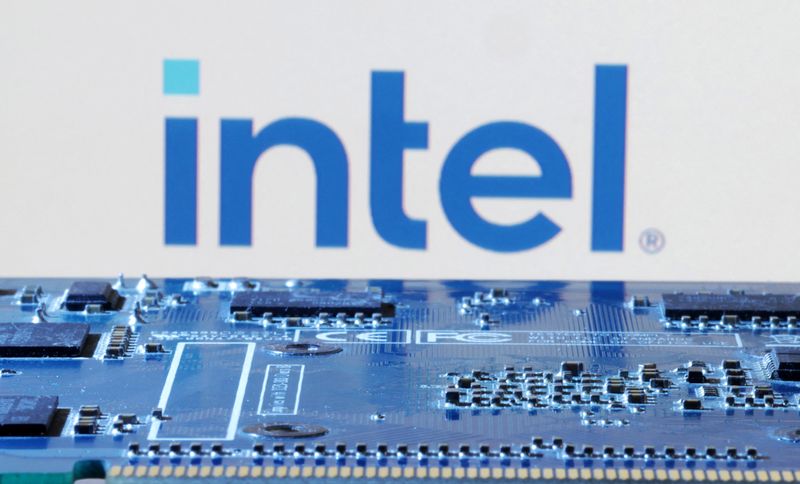By Joseph White
DETROIT (Reuters) - Intel (NASDAQ:INTC) said on Tuesday it will launch automotive versions of its newest AI-enabled chips, taking on Qualcomm (NASDAQ:QCOM) and Nvidia (NASDAQ:NVDA) in the market for semiconductors that can power the brains of future cars.
Intel also said it will acquire Silicon Mobility, a French startup that designs system-on-a-chip technology and software for controlling electric vehicle motors and onboard charging systems. Intel did not disclose a purchase price for the closely held company, controlled by venture funds Cipio Partners and Capital-E.
Chinese automaker Zeekr will be the first automaker to use Intel's AI system on a chip to create "an enhanced living room experience" in vehicles, including AI voice assistants and video conferencing, Intel's automotive business chief Jack Weast said ahead of the CES technology show in Las Vegas.
Intel's new automotive system on a chip products will adapt the company's recently launched AI PC technology for the durability and performance requirements of vehicles, Weast said.
Intel has supplied chips for infotainment systems installed in 50 million vehicles, but has been eclipsed by Nvidia and Qualcomm in the growing market for powerful semiconductors required by automated driving technology, upgradeable vehicle system software and complex dashboard displays.
"Intel has done a pretty terrible job communicating our success in automotive," Weast told reporters in a conference call ahead of the announcement at the CES technology show in Las Vegas. "We are going to change that."
Intel will try to separate itself from rivals by offering chips that automakers can use across their product lines, from lowest-priced to premium vehicles, Weast said.
"If AI in the car means 500 watts ... and God knows what costs ... it's not scalable," Weast said, referring to Nvidia's powerful, expensive products.
Nvidia last year formed an alliance with MediaTek of Taiwan to offer lower-cost chip sets. MediaTek is a leader in supplying technology for Android-based infotainment displays used in lower-priced vehicles.
China's fast-growing electric vehicle market will be a battleground for chip makers. Chinese vehicle makers are racing to offer advanced infotainment systems and automated driving. Zeekr, for example, is a customer for both Intel and Nvidia's technology.

Intel will also be "agnostic" as to what technology for automated driving or other functions automaker customers want to use, he said.
Intel will not require automakers to use advanced driving chips designed by its former Mobileye unit, he said. Instead, automakers can have Intel incorporate their own chiplets to enable specific functions into the Intel system at a lower cost.